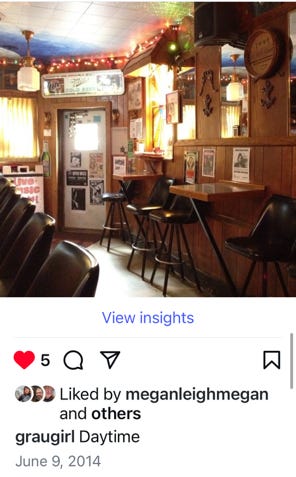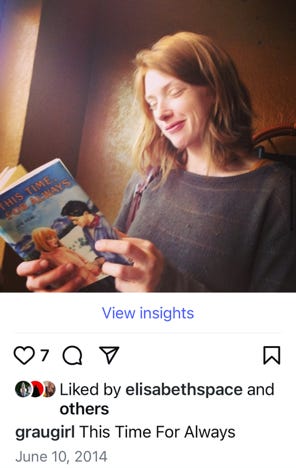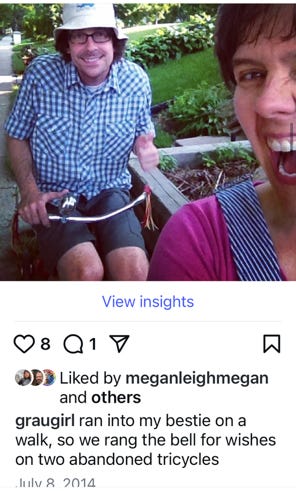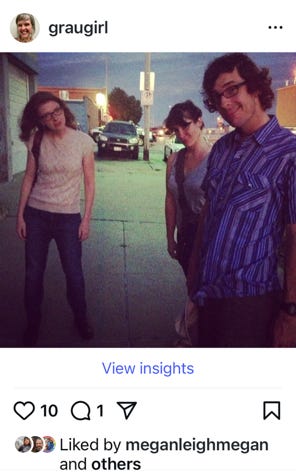Who remembers Googlet?
You’ll likely know it as Google+ (Google Plus).
But a once very close friend of mine, Richard, referred to it as “Googlet,” cuz essentially a plus sign “+” is just a little “t.”
Most importantly, isn’t Googlet so much more satisfying in the mouth than Google Plus?
It brings to mind
bralettes,
omelettes, and
owlets; the young or unflown owls.
As if Googlet was the feathered offspring of Google. Tho Googlet was really supposed to be more of a nest, and less of a bird. The bird was already dominating.
Vic Gundotra, the man behind the social network that Google claimed wasn’t a social network, spoke often about the human aspect of Googlet. In an official Google Blog post on the day of the release, Gundotra laid it out,
“Today, the connections between people increasingly happen online. Yet the subtlety and substance of real-world interactions are lost in the rigidness of our online tools. In this basic, human way, online sharing is awkward. Even broken. And we aim to fix it. We’d like to bring the nuance and richness of real-life sharing to software. We want to make Google better by including you, your relationships, and your interests. And so begins the Google+ project:1
Googlet, code name Emerald Sea, was launched on June 28, 2011.
On July 1, 2011, I emailed my once very close friend, Regis, the following:
hey - this google+ thing looks cool. i'm going to take the tour and then join.
This was likely the one and only time in my life that I was cutting edge. In the Technology Adoption Lifecycle, I’m never to the left of the bell curve with the Innovators and Early Adopters, but instead I’m late to the bell, deep on the right of its delayed edge, with the Laggards. Yet in the summer of 2011, I was on the razor-thin blade of a just-born social network that would be dead in only 8 years’ time.
Eight days later, on July 9, 2011, Elisabeth emailed to ask me:
Did you ever go back and sign up for Google+? Are you part of a social network of sorts now?
“Are you part of a social network of sorts now?”
The term “social network” sounds outdated now, yet the transition to the term “social media” clearly reflects the evolution of how we use platforms like Instagram and Facebook; more for consumption of media, and less for interaction.
The question that Elisabeth posed to me about Googlet showed her knowledge of me and the gravity of my deciding to join a social network, since I was recently brand new to, and quite skittish about, Twitter. And now I was about to join Googlet too?!
Never lacking in social bravura, I am a skillful butterfly in life and yet a manic social scaredy cat online. Gundotra’s assertion that online sharing is awkward was true for me, but often not so for others. The wallflowers in the flesh seem to be comfortable in the aphysical place of the online space. But for me, never one to stand against the wall, being online did not come naturally.
It felt exposed and vulnerable.
To be in a “room” or a “group” or a “circle” where you didn’t have the agency of your senses was unnerving. Physicality is communication, and it’s full of information, but the virtual world was the land of profile pics and flatness. There was nothing but text for me online, and I navigated the world more sensually than that;
paying attention to expressions,
sniffing for anxiety,
judging gestures,
observing body language.
Videos likely surpass any other type of posts at this point, but it’s still life compressed into two dimensions and comes without odors or scents to stimulate my olfactory senses.
I tiptoed into Twitter not long before Googlet was launched. Two of my closest friends at the time were already well-established in the tight universe of Weird Twitter. Two men whom I sat backseat to for years because I didn’t believe in myself enough to just take the wheel and drive. Soon tho, I was fully embedded in the Twitter tree. It consumed me for a couple of years from about 2011 to 2013. I was addicted to the ever-open party of it all. This strange and cohesive group of misfits formed around the pre-political throb of the little blue bird. A variety of ages and types would gather in the branches to post poetic tweets and sexy weirdness. Many love affairs started. Just as many ended. Creative collaboration was as much a characteristic of my Twitter days as gossip and erotica. We watched as two in the amorphous online group created a much-adored podcast called Welcome to Night Vale, the town which I was Poet Laureate of in 2013, on Episode 20.2 Hot-blooded clotted cream, baby.
I miss that part of my short stint on Twitter; the constant effervescent creative stimulus and the perpetual connection. I don’t miss the mania tho. The inability to put down my phone when sharing physical space with flesh friends, and instead socializing online in a world of only mind, and no body.
Unlike Twitter, Googlet was less passionate and more staid. At least within the circles I inhabited. It felt like a quiet game night with formal cocktails, whereas Weird Twitter felt raucous and raunchy. I remember very little from my time on Googlet, but clearly recall many of my Twitter compatriots.
In 2014, by the time I was less active on Twitter, I’d found Instagram. Original Instagram was lovely. Peaceful even. One photo, and no more.
No reels or videos. No movement. Instagram, a decade ago, was akin to sitting next to the pacifying babble of a brook, rather than the instigating roar of a narrow river. I loved it! Each new IG feature allowed the platform to penetrate deeper into people’s lives with a veinous tenacity.
I don’t have to share how embedded that app became in my life, because if nearly half of US adults are on Instagram3, then it’s likely you’ve experienced your own bit of app addiction as well.
Nearly eleven years had passed since I joined Instagram when I decided to leave. Not just leave, but delete. My reasons were many; everything from politics and algorithms to overwhelm and boredom. And once I finally made the decision to do it, but before I went through with it, I fretted over what the effect would be. Worried at how disconnected I’d feel. Stressed about the withdrawal from my habit.
It’s been four months since I deleted all my Instagram, Facebook,4 and Twitter accounts, tho IG was the only one I was active on.
There was no withdrawal.
There was no regret.
I don’t even miss Instagram.
Out of sight, out of mind, is rarely how I roll, but IG is the fog that disappears with the morning’s rising.
While out at an art opening a month ago, I ran into someone whom I’d initially met in person about 8 years ago, but since then, most of our interactions have been on IG. So when we’d run into each other, we’d discuss our lives as if we were daily, intimate friends, but in reality we’d just kept abreast of each other’s posts. So this most recent post-IG run-in was different because I couldn’t remember his name, and my knowledge of him was no longer recent; it was oh so old. Our conversation was stumbly, and I was wracking my brain for his name. Instagram DID encourage connection. Yet it’s not like I missed connecting with that guy particularly.
And now without IG, other connections began to fray. Since deleting it, I’ve felt less tied to the online world in general. Fewer emails to long-distance friends. Less activity in the Club (the
Discord Group). Even less texting.Suddenly untethered to the virtual.
Unmoored to the Internet atmosphere.
As if the knot in the dick of a dog that anchors him to the female during sex had just worn through, setting me to run free and alone; and isn’t Nature a clever beast, or am I just resentful that the knot is on the other genitalia?
I lamented this disconnected realization to an online friend via an email in May, when I wrote, “You know what's funny is that since I left social media, it seems like I'm just online less altogether - and connecting less - which is the opposite effect I thought this move would have. It may be that now that I'm less attached to my phone, I find that I'm more productive during the day and now need to figure out how to continue to keep up connections. . . even in local life, as I've been turning down invitations.”
Godwin (
) replied how he understood, and how the world is moving online and it’s something he often contemplates too. And then he offered a suggestion, “A great way to keep in touch without constantly being online, I'd say, is scheduling times to get in touch.”His suggestion boasts a subtle brilliance, because it’s about taking agency. Not being passive. Not letting the app decide for you, but instead deciding and taking action for yourself.
Before I started writing this morning, I rocked on the porch in the chair that Jim was rocked in as a baby, and drank my coffee while opening emails on my phone. An article titled “How We Became Captives of Social Media,”5 from the online magazine NOĒMA was in my email and seemed too appropriate to be true. The introductory section of the article focused on relating Plato’s allegory of the Cave to social media. I know very little about the Allegory of the Cave, whereas Plato’s Theory of Forms comes to my mind often; maybe because it was one of my philosophy professor's favorite topics, or maybe because I loved the concept of a perfect chair existing somewhere in a realm both accessible and yet unknown to my stodgy mind. For a nonbeliever, this theory seemed to provide me with a way to strive for the pinnacle of goodness, in both love and furniture. This aside is to highlight that my knowledge of Plato comes strictly from college courses, and beyond the Theory of Forms, is Jeopardic at best. Meaning, I could easily ask “What is Plato’s Allegory of the Cave,” in response to a question on Jeopardy, but it wouldn’t mean that I understand anything about it. So when the NOĒMA article explained how the allegory of the cave involves people chained by their necks and legs, all I could think was, “Plato was a torture fetishist.”
And whether I’m online or not, it’s up to me to learn more about Plato and hunt down any other torture fantasy writings of his, and discuss them with friends, whether in the flesh, via text, or in the club.
The decision is mine.
And maybe Googlet could use a resurrection.
This piece was written for the Symposium on “Connection.”
P.S. The one difficulty about not being on a bunch of social media platforms is that it’s harder to remind people that they can buy my book!
https://googleblog.blogspot.com/2011/06/introducing-google-project-real-life.html
https://www.pewresearch.org/internet/fact-sheet/social-media/
I had no friends on FB, and only had a personal account so I could open a business account in 2012. Since the bakery closed, I’ve mainly used FB only for our local Buy Nothing group and for the Messenger app.
https://www.noemamag.com/how-we-became-captives-of-social-media/








Man, there was a brief period of time where my go-to decompress was listening to Welcome to Nightvale while editing photographs. It didn't last long, and in classic nostalgic terms was a sense of happiness not understood until it was (actually, literally, non-metaphorically violently) taken away by *waves hands* all this, the Internet that had yet to come.
I didn't feel any regret or withdrawal when I deleted my socials either. I just felt at peace. I still have Twitter, but I really just use it as a news aggregator. I don't post, and I don't look at the for you tab. I just follow outlets I trust and check in from time to time. Life is so much calmer without all that digital noise.